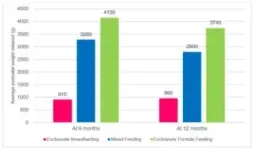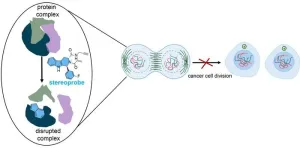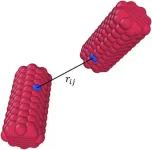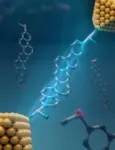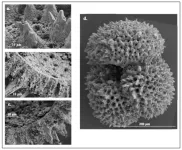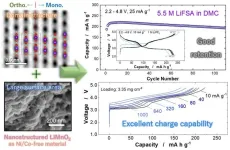With a grand vision of investing $66 million over 10 years in groundbreaking medical innovations, WEHI’s first strategic investment fund, 66ten, is the largest internal pre-seed and seed fund created by an Australian medical research institute.
Managed by WEHI Ventures, 66ten serves the sole purpose of bridging the gap between scientific discoveries and commercial viability, ultimately creating both positive outcomes for patients and healthcare systems globally as well as financial returns to investors.
Since its foundation a year ago, 66ten has invested in a pool of diverse and unique medical innovation projects. These projects include one that confronts one of the most ‘common’ rare diseases with very high unmet medical need, Prader-Willi Syndrome (PWS).
Different from available therapeutics that only treat symptoms, this project is developing a potential disease-modifying treatment for PWS that targets the underlying cause of disease, providing hope that it can treat all symptoms at their source. This makes it a breakthrough project that may deliver life-altering benefits to patients and families around the globe.
At a glance
66ten is WEHI’s first strategic investment fund, born under the banner of WEHI Ventures. It is dedicated to providing sustained support to ideas that are developed at or in collaboration with WEHI, and maximising the potential of the fund’s proprietary commercial project portfolio.
Funding support and commercial guidance is crucial to pre-seed and seed-stage science innovation, giving ideas a critical boost to reach commercialisation, and starting them on the journey to potentially becoming future medical products that create tangible benefits for patients and healthcare systems.
66ten is managed by a team of commercialisation experts and scientists with commercial research and development experience. The fund has oversight from a predominantly external investment committeeconsisting of serial bioscience entrepreneurs, life science investment managers and research and development leaders from the biopharmaceutical sector.
Redefining research discovery and translation
66ten is a strategic investment fund that values scientific excellence and the potential for groundbreaking innovations. Operating as a pre-seed and seed fund enables 66ten to support a range of projects with commercial potential, from initial ideation to projects that have already progressed further in development.
66ten is structured into different investment streams to ensure the fund efficiently supports projects at different development stages. This strategy mitigates risk and streamlines the operation of the WEHI Ventures team.
Dr Anne-Laure Puaux, chief executive officer at WEHI Ventures and head of Business Development at WEHI, said that the institute has an established record of outstanding scientific discoveries.
“66ten was established to transform groundbreaking discoveries into innovative commercial programs that can deliver outcomes for patients and financial returns to investors,” she said.
“It is a unique venture fund that occupies its own space within the venture capital landscape in Australia thanks to WEHI’s long-standing contribution to the medical science fields.”
The anti-cancer treatment venetoclax is based on a landmark discovery made by WEHI, placing the institute on the global map for medical innovation. Venetoclax was the result of a research collaboration between WEHI and companies Roche, Genentech (a member of the Roche Group) and AbbVie.
To date, tens of millions of people worldwide have benefited from WEHI research, and more than 420 clinical trials are underway due to discoveries made at WEHI.
“66ten is designed to deliver commercial success for WEHI and its stakeholders, with the aim of shortening the timeframe to patients benefitting from WEHI discoveries,” said Dr Puaux.
“Any financial returns generated via portfolio activities will support WEHI research, discoveries and technologies, to continue WEHI’s fulfilment of its research mission and contribute to the institute’s financial sustainability.”
Dr Roslyn Hendriks, chair of the 66ten Investment Review Committee said that it can be extremely hard for researchers to navigate through the early translational stages of their projects.
“What we are trying to do is to not only offer researchers the financial means to set up projects, but also equip them with the resources and guidance to advance their technologies with commercial potential through the technology readiness levels,” said Dr Hendriks.
“In that sense, 66ten also serves as a vehicle through which to attract science-focused minds at the top of their own fields, as well as funding partners who share the same vision as WEHI. We want to see science-based commercial projects flourish, but equally, we want to see a missing part of the current research and translational ecosystem being filled and a funding landscape that will support and help de-risk more brilliant and innovative technologies.”
66ten commenced operations in July 2023. Through the past year, the fund has invested in a growing set of early-stage programs and start-up companies, each of which is linked to WEHI-based discoveries. These projects received investment under different streams, and some of them are co-investments with renowned biotechnology venture capital funds.
WEHI director Professor Ken Smith said the institute’s vision was for 66ten investments to drive significant human health outcomes across a range of areas of medical science.
“This inaugural WEHI fund was born with the vision to support the ultimate goal of our scientists: to translate innovative research into the treatments, diagnostics and devices needed to help transform patient outcomes,” said Prof Smith.
“Philanthropic and government support will remain critical to WEHI’s success; the 66ten fund will help take brilliant science from lab to bedside, amplifying the real-world impact of research funded by our community of supporters.”
Modifying a ‘common’ rare disease
Prader-Willi Syndrome (PWS) is a rare neurodevelopmental disorder that has complex effects on almost all systems of the human body and brain. It is a non-inherited genetic condition, occurring spontaneously with an estimated incidence of between one-in-10,000 and one-in-30,000 people.
Patients experience PWS symptoms in different ways and degrees. Symptoms include eating uncontrollably, low muscle mass and tone, gastric complications, impaired cognition, speech difficulties, mental illness and behavioural challenges. Currently, standard-of-care treatment solutions for PWS only target symptoms and provide incomplete relief.
There is no cure, making it a devastating and challenging condition for patients, families and carers.
66ten has made a significant investment into a project targeting SMCHD1, a protein that controls the expression of the genes that are missing or incorrectly switched off in PWS patients.
Clearly differentiating itself from other developing or in-market technologies, a new drug that inhibits how SMCHD1 functions has the potential to become a disease-modifying therapy – a novel and life changing way of helping PWS patients.
This unique potential enhances the possibility of attracting interest from future investors and pharmaceutical companies; a goal of 66ten which, in turn, would allow potential financial returns to be reinvested into WEHI’s research mission.
Professor Marnie Blewitt, acting deputy director and laboratory head at WEHI, is the lead scientist on the SMCHD1 project team.
“A few years back, hunting for a new therapy for Prader-Willi Syndrome, we were able to discover a chemical candidate that could be used as the basis to develop a future drug,” said Prof Blewitt.
“The National Drug Discovery Centre, based at WEHI, analysed around 300,000 chemicals before making this discovery, which was akin to finding a needle in a haystack. This collaborative effort is what has enabled our project to progress to its current and exciting stage.
“Now, the investment from 66ten has injected new momentum into our drug discovery program, and we hope this investment will deliver a therapeutic candidate for 400,000 patients worldwide; one that goes beyond moderating symptoms and fundamentally improves their lives.
“This project would not have been possible without the support from WEHI, Prader-Willi Research Foundation Australia and the National Drug Discovery Centre.
“It takes a village for a scientific discovery to finally reach patients, but it can be incredibly rewarding when it comes to fruition. 66ten is not just financial support for WEHI scientists to realise their vision; it also offers the expertise, guidance, discipline, and network to fast track discoveries, which eventually will result in the delivery of life-changing therapeutics and technologies for patients and healthcare systems.”
END

